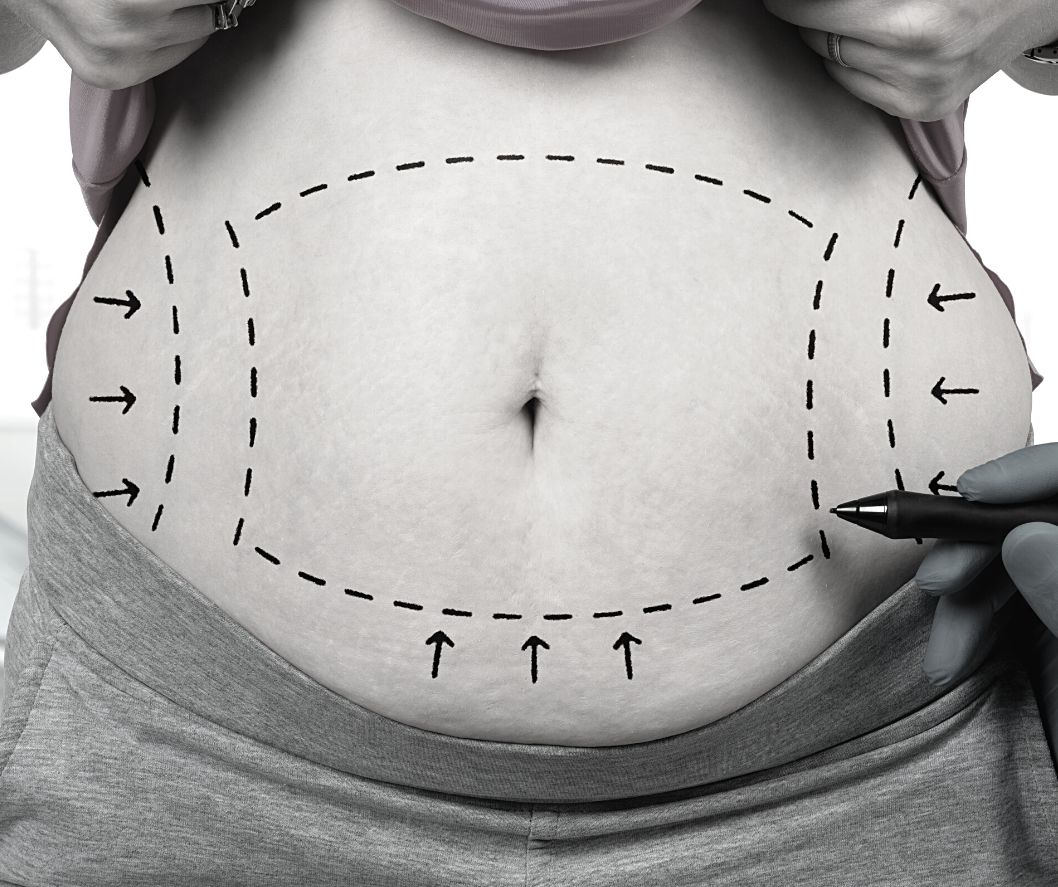Exploring Non-Invasive Liposuction Alternatives
In the pursuit of achieving desired body contours and addressing stubborn fat deposits, liposuction has long been considered a popular option. However, advancements in medical science have introduced non-invasive alternatives that offer effective and convenient solutions. This article aims to explore two such alternatives: Ozempic and Mounjaro. We will delve into the unique features of these weight loss injections, highlighting their effectiveness and safety compared to traditional liposuction procedures.
Understanding Liposuction
Liposuction, a surgical procedure, involves the removal of excess fat deposits from specific areas of the body. Skilled surgeons utilize a small, hollow tube called a cannula to suction out unwanted fat cells, sculpting the body's contours. While liposuction can provide dramatic and immediate results, it is important to note that it is not primarily intended as a weight-loss procedure. Instead, it serves as a body contouring technique for enhancing the appearance of targeted areas such as the abdomen, thighs, hips, and arms.
Introducing Ozempic: A Non-Invasive Alternative
Ozempic, also known as semaglutide, is a prescription medication belonging to the class of glucagon-like peptide-1 receptor agonists (GLP-1 RAs). Originally developed for the treatment of type 2 diabetes, Ozempic has shown promising results as a weight loss treatment. By stimulating insulin secretion, reducing glucose production in the liver, and slowing down gastric emptying, Ozempic aids in weight loss as a side effect.
Mechanism of Action
Ozempic works by mimicking the effects of gut peptides, specifically glucagon-like peptide-1 (GLP-1) and gastric inhibitory polypeptide (GIP). These hormones play a crucial role in regulating appetite, satiety, and blood sugar levels. By increasing the activity of GLP-1 and GIP receptors, Ozempic promotes satiety, reduces sugar cravings, and aids in breaking down fat through lipolysis 3. This multifaceted approach makes Ozempic an effective tool for weight loss.
Safety Considerations
As with any medication, it is essential to consider the potential side effects of Ozempic. Nausea, vomiting, abdominal pain, and constipation are among the common side effects associated with Ozempic usage. Additionally, there is a small risk of thyroid C-cell tumors and more serious side effects such as pancreatitis or gallbladder disease, albeit at a low occurrence rate. It is important to consult with a healthcare professional before starting Ozempic to assess any potential risks and ensure it is the right choice for you.
Mounjaro: Another Approach
Mounjaro is another weight loss injection that contains tirzepatide, a hormone-mimicking diabetes treatment. Similar to Ozempic, Mounjaro has demonstrated remarkable results in clinical trials, making it a promising non-invasive alternative to liposuction.
Mechanism of Action
Mounjaro, like Ozempic, acts as a GLP-1/GIP receptor agonist. By targeting both GLP-1 and GIP receptors, Mounjaro effectively increases satiety, aids in fat breakdown through lipolysis, and regulates blood sugar levels. The dual action of Mounjaro on both receptors may contribute to its superior weight loss results compared to other medications that are solely GLP-1 agonists 3.
Safety Considerations
As with any medication, it is important to consider the potential side effects of Mounjaro. Similar to Ozempic, Mounjaro may cause side effects such as nausea, vomiting, abdominal pain, and constipation 3. It is crucial to consult with a healthcare professional to evaluate any potential risks and determine if Mounjaro is the right choice for you.
Liposuction Surgery vs. Injectable Medication
When considering liposuction alternatives, it is essential to assess your individual needs and goals. Both Ozempic and Mounjaro offer non-invasive approaches to weight loss and body contouring. However, there are several factors to consider in making an informed decision.
Weight Loss Goals
If your primary concern is overall weight loss and diabetes management, Ozempic may be more suitable for you. Its weight loss effects, as a side effect of diabetes management, can aid in achieving your weight loss goals. On the other hand, if you desire targeted body sculpting and contouring, liposuction or Mounjaro could be better options as they directly address localized fat deposits.
Medical Considerations
Individuals with certain medical conditions may not be suitable candidates for liposuction. Additionally, both Ozempic and Mounjaro have their own set of considerations and potential side effects. It is crucial to consult with a healthcare professional to determine the most appropriate option based on your medical history and unique needs.
Realistic Expectations
It is important to have realistic expectations when considering any weight loss method, whether surgical or non-invasive. Understanding what each method can realistically achieve is crucial in managing expectations and ensuring satisfaction with the results. Consultation with a healthcare professional can help set realistic goals and provide insight into the potential outcomes of each option.
Safety and Side Effects
Liposuction is a surgical procedure, and as such, it carries the risks associated with any surgical intervention. Ozempic and Mounjaro, while non-invasive, may have their own set of side effects. Understanding the potential risks and benefits is essential in making an informed decision. Consultation with a healthcare professional will provide clarity on the safety considerations associated with each option.
Liposuction alternatives such as Ozempic and Mounjaro offer effective and non-invasive approaches to weight loss and body contouring. While liposuction remains a popular choice for targeted fat removal, these weight loss injections provide safe and efficient options for individuals seeking to achieve their body sculpting goals without the need for surgery. By understanding the unique features of each option and consulting with healthcare professionals like Dr. S. Blake Kelly, you can make an informed decision that aligns with your goals and medical history.
Disclaimer: This article is for informational purposes only and should not be considered medical advice. Please consult with a healthcare professional before starting any weight loss treatment or procedure.

